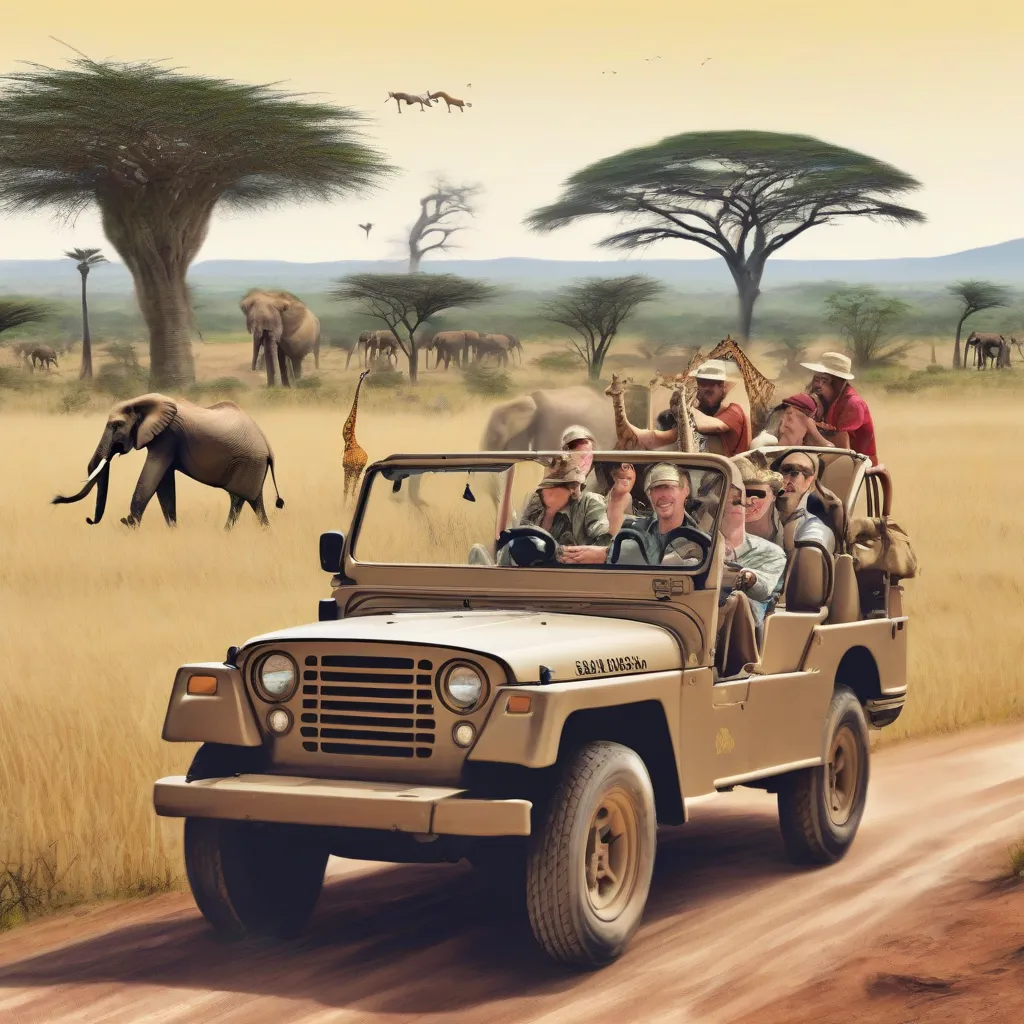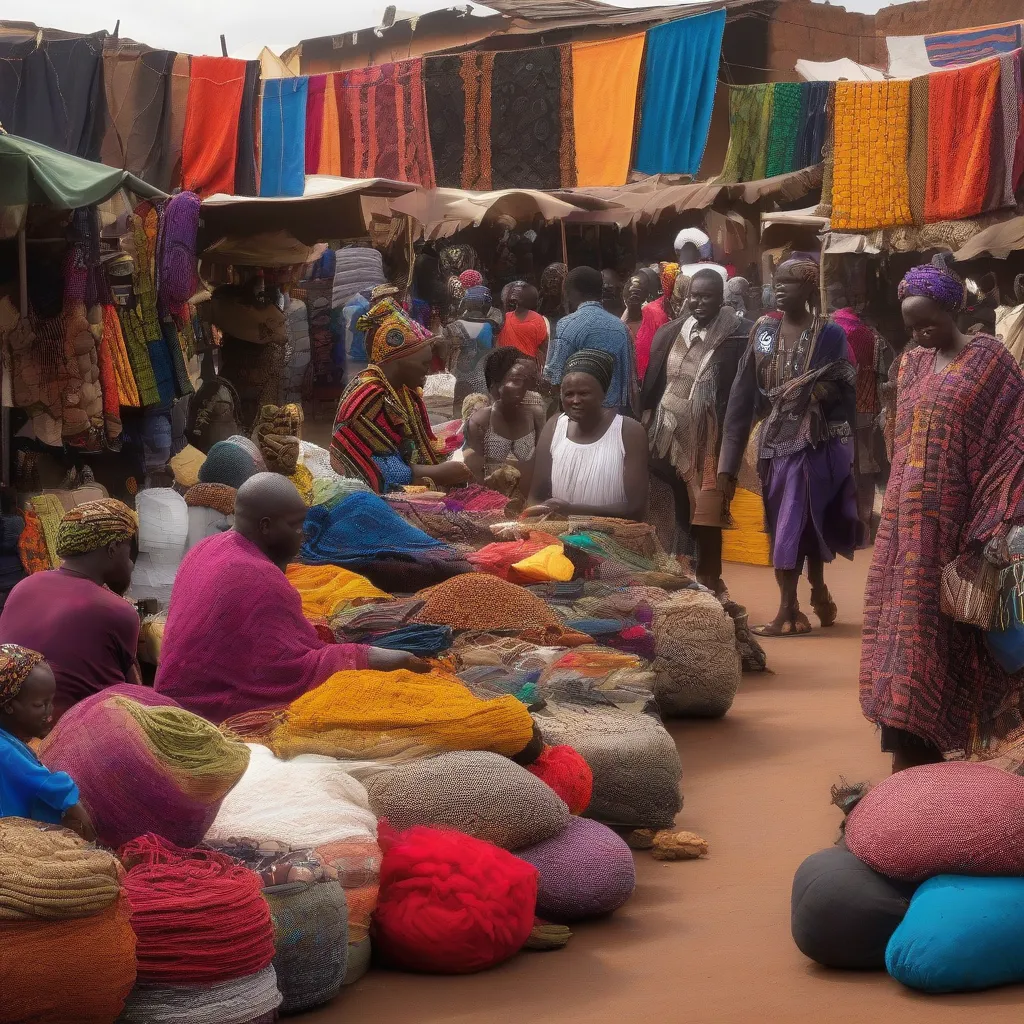Have you ever dreamt of witnessing the Great Migration across the Serengeti, climbing Mount Kilimanjaro, or exploring the vibrant markets of Marrakech? Africa, a continent of astounding diversity and breathtaking beauty, promises an adventure like no other. But with 54 countries and countless wonders to explore, planning a trip to Africa can seem daunting. Fear not, intrepid traveler! This comprehensive guide is designed to equip you with all the knowledge you need to plan an unforgettable African adventure.
Planning Your African Adventure
Choosing Your Destination
Africa is a continent of diverse landscapes and cultures, so deciding where to go is your first exciting challenge. Are you drawn to the wildlife-rich savannas of East Africa, the ancient history of Egypt, the sun-kissed beaches of Mauritius, or the bustling souks of Morocco?
Here are some popular options to get you started:
- For the ultimate safari experience: Tanzania (Serengeti National Park, Ngorongoro Crater), Kenya (Maasai Mara), Botswana (Okavango Delta), South Africa (Kruger National Park).
- For history buffs: Egypt (Pyramids of Giza, Valley of the Kings), Morocco (Fez, Marrakech), Ethiopia (Lalibela).
- For beach lovers: Mauritius, Seychelles, Zanzibar, Cape Town (South Africa).
- For adventure seekers: Climb Mount Kilimanjaro (Tanzania), trek to see gorillas in Rwanda or Uganda, go white-water rafting on the Zambezi River (Zambia/Zimbabwe).
 Safari Adventure in Africa
Safari Adventure in Africa
Best Time to Travel
Africa’s climate is as diverse as its landscapes. The best time to travel depends largely on your chosen destination and your interests.
- For wildlife viewing: The dry season generally offers the best game viewing opportunities. In East Africa, this typically falls between June and October.
- For trekking: Consider the shoulder seasons (April-May and September-October) when the weather is milder.
- For beach holidays: Many coastal areas enjoy year-round sunshine, though some regions have a distinct rainy season.
Remember to research the specific climate and weather patterns of your chosen destinations.
Visas and Travel Documents
Ensure you have a valid passport with at least six months of validity remaining from your planned return date. Visa requirements vary significantly depending on your nationality and the countries you plan to visit. It’s essential to check the specific visa regulations well in advance and apply accordingly. Some countries offer visas on arrival, while others require applications to be submitted in advance.
Health Considerations
Consult your doctor about necessary vaccinations and preventative medications well before your trip. Malaria is prevalent in many parts of sub-Saharan Africa, so taking antimalarial medication is crucial. It’s also advisable to pack insect repellent, sunscreen, and a basic first aid kit. Ensure you have comprehensive travel insurance that covers medical expenses and emergencies.
Budgeting for Your African Adventure
Africa offers travel experiences for every budget. Here’s a general overview of costs:
Budget-friendly:
- Accommodation: Camping, hostels, budget-friendly guesthouses
- Food: Local markets, street food, budget-friendly eateries
- Transportation: Public buses, shared taxis
Mid-range:
- Accommodation: Comfortable guesthouses, lodges, mid-range hotels
- Food: Local restaurants, tourist-oriented eateries
- Transportation: Domestic flights, private transportation
Luxury:
- Accommodation: High-end lodges, safari camps, luxury hotels
- Food: Fine dining restaurants, gourmet experiences
- Transportation: Private charters, luxury transfers
Tips for Budget Travelers:
- Consider traveling during the shoulder seasons (spring and fall) for more affordable rates.
- Opt for local transportation options like buses and shared taxis.
- Embrace street food and local markets for authentic and affordable culinary experiences.
- Look for free activities, like hiking and exploring local markets.
- Haggle respectfully when shopping for souvenirs or at local markets.
 African Market Experience
African Market Experience
Essential Packing List for Africa
Packing for Africa depends on your chosen activities and destinations. However, here are some essential items to include:
Clothing:
- Lightweight, breathable clothing in neutral colors
- Long-sleeved shirts and pants for sun protection and insect bites
- A warm sweater or jacket for cooler evenings
- Comfortable walking shoes
- A hat, sunglasses, and sunscreen for sun protection
- A scarf or sarong for cultural sensitivity and versatility
Gear:
- A sturdy backpack or duffel bag
- A smaller daypack for excursions
- A reusable water bottle
- A headlamp or flashlight
- Adapters and converters for electronics (Africa uses various plug types)
Staying Safe and Respecting Local Cultures
- Respect local customs: Research the cultural norms of the countries you’ll be visiting and dress modestly when appropriate.
- Learn a few basic phrases: Greeting people in their local language shows respect and can enhance your interactions.
- Drink bottled water: Avoid tap water unless it’s been boiled or purified.
- Be mindful of your belongings: Petty theft can occur, so be aware of your surroundings and keep valuables secure.
- Bargain respectfully: Haggling is common in many African markets, but always be respectful and polite during negotiations.
- Stay informed: Keep up-to-date on travel advisories and safety recommendations from your home country’s embassy or consulate.
Embracing the Spirit of Africa
Africa is a continent that will stay with you long after you’ve left its shores. It’s a place where ancient traditions meet modern life, where wildlife roams free, and where the warmth of its people will touch your heart. So, embrace the adventure, immerse yourself in the culture, and prepare to be amazed by the magic of Africa.
For more travel inspiration and to explore stunning destinations around the world, visit travelcar.edu.vn.
Have you traveled to Africa? Share your favorite memories and tips in the comments below!

